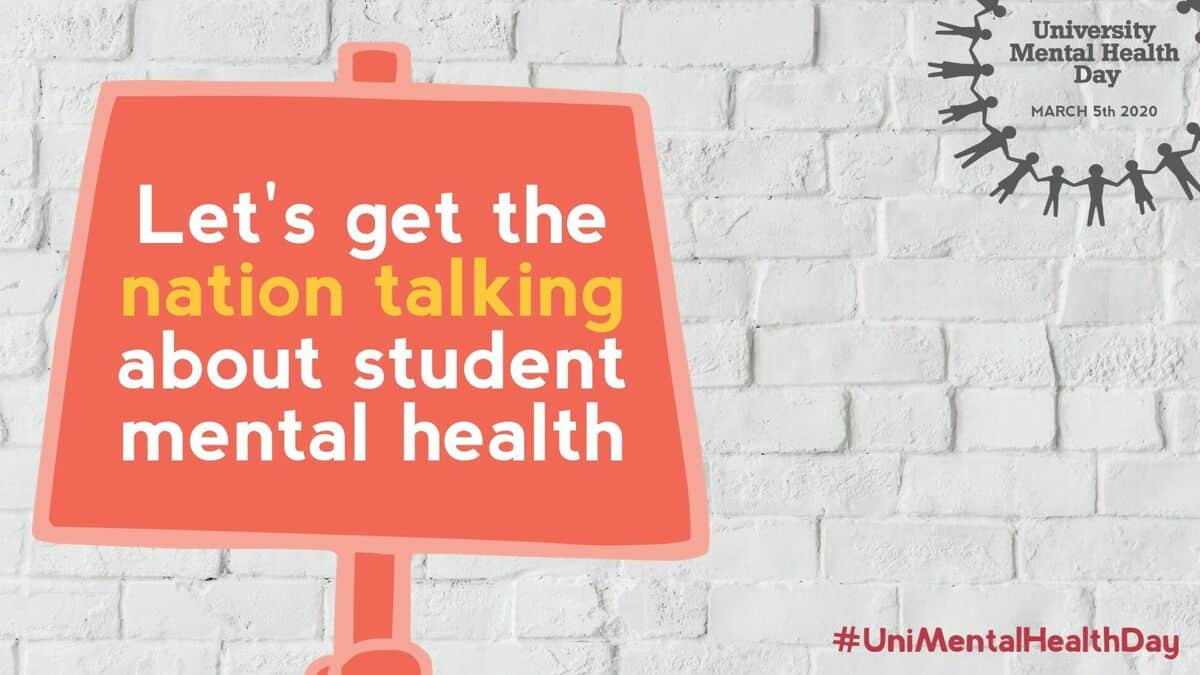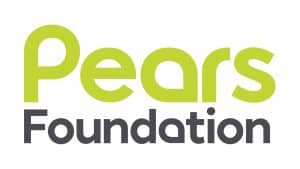Thursday 3rd March was the 14th University Mental Health Day (UMHD). The first UMHD was piloted by the Children and Young People’s Mental Health Coalition (CYPMHC) members’ UMHAN in 2008 when there were a few events held at a select few universities – all put on by UMHAN members. The original premise was to hold events to raise the visibility of mental health on campus, and so help to break down stigma.
Since then, the event has grown and grown. We have always worked closely with Student Minds (also members of the CYPMHC), and since 2012 we have run the day together; their influence has helped promote the participation of Student Unions and students.
It’s great to see that events are often now run by whole student support or academic departments. External service providers, such as student accommodation, local NHS services and private companies have now started taking part too. There are a wide range of events – from coffee and chat to film festivals.
Mental Health & Green Spaces
Every year we suggest a theme to our members to help them to plan events; they are all busy mental health practitioners so we try to support them to put on events and publicise the day. With our experiences of living through the pandemic, and the climate crisis, exploring the impact green spaces can have on wellbeing and mental health seemed to be a perfect fit this year.
University campuses vary hugely from campuses in the heart of cities, with very little outside space, to those with their own parkland and farms. Recent research has shown the benefits of nature to improve wellbeing, but we also wanted to explore how to engage students with the green spaces around them, and particularly those with mental health conditions.
Numerous universities used our Green Spaces theme for their events – the University of Cumbria (blessed with an amazing location!) had a photography competition on the theme of mental health and greenspace. The premise was simple: students were asked to take photos of the Lakeland fells/mountains, forests, rivers, gardens, window boxes, house plants, etc., and to then convert 12 of the entries into an academic calendar, that they will sell to raise money for charities. They also blogged about local greenspaces to each of their campuses that students and staff can explore. Additionally, an existing campus project called Green Minds (which is a group of staff and students who meet regularly to look after some of the flowerbeds on campus) was relaunched on UMHD this year.
UMHAN webinars
This year we also ran our own free webinars after being approached by Dr Danni Sinnett from the University of the West of England (UWE) to support research into students’ use of green spaces. Danni had previously undertaken an evidence review for the Wellcome Trust on the use of urban green spaces by young people for their “Active Ingredients” project. She shared the findings that better access to green spaces has a beneficial effect on anxiety and depression in young people aged 14-24; that there was a 14-19% reduction in anxiety for young people from just 15 minutes walking in an urban park instead of street traffic, which increased to 23-31% when this was in a forest. Much of the research so far has been undertaken in Japan, so we are looking forward to the results of future research in the UK. You can find out more on the UWE blog.
Our 2nd webinar was by Dr Ben Wheeler from the University of Exeter, whose team focuses on research into the environment, health and inequalities. He highlighted that those who might most benefit from visiting nature were those with the least opportunities to access this. We were also joined by Tom Brown from the Green Light Trust, a charity who work with marginalised groups to empower people through time spent in the natural world using the concept of Green Care. This includes children and young people who have been excluded and with SEN.
At both webinars we discussed how this research and showcased activities could be used by universities to improve student mental health and wellbeing. Recordings of both events are available to view on our website.
Student Mental Health
We also take the opportunity on UMHD to reflect on the successes and challenges of the year on our blog. We have around 500 members who are all Mental Health Practitioners working in education, and we hold regular member meetings, feedback surveys and have an active forum which helps us to understand what’s happening in the sector.
One of the key opportunities provided by Covid was for students with long term health conditions to be able to access teaching and support more flexibly, due to the use of online platforms. For students who struggle with attendance or “engagement” due to their mental health (either due to symptoms or side effects of medication) being able to access teaching and support online has been largely positive. For many disabled students, including those with long term mental health conditions, this has included adjustments which they have previously been told were not possible – we hope the sector will reflect on this and ensure that returning to “normal” does not mean we take a step backwards.
We also blogged about our concerns for practitioners to be able to practise safely, due to a range of issues: high and complex caseloads, understaffing and a lack of clear governance.
Many of our members do not feel that they have appropriate systems and processes in place to help best manage risk and prevent student suicides, and that information sharing practices are at times inconsistent and not aligned with best practice. We’ll be launching an in-depth report on this specific issue with colleagues from BACP-UC at the end of the month – please sign up to our newsletter to find out more.
Author: Sam Gamblin
About the author
Sam Gamblin has been UMHAN’s Charity Manager for 3 years, and previously managed a student disability support service at a large university. She is also a proud SHOUT volunteer and has a personal as well as professional interest in mental health support across the education sector.
UMHAN – The University Mental Health Advisers Network started in 2003 and now has around 500 members. The majority are Mental Health Practitioners working in universities. Our vision is for students with Mental Health Conditions to be supported by well-trained, knowledgeable and professional practitioners – to reduce risk and increase safety for them as they study. More info: https://www.umhan.com/






